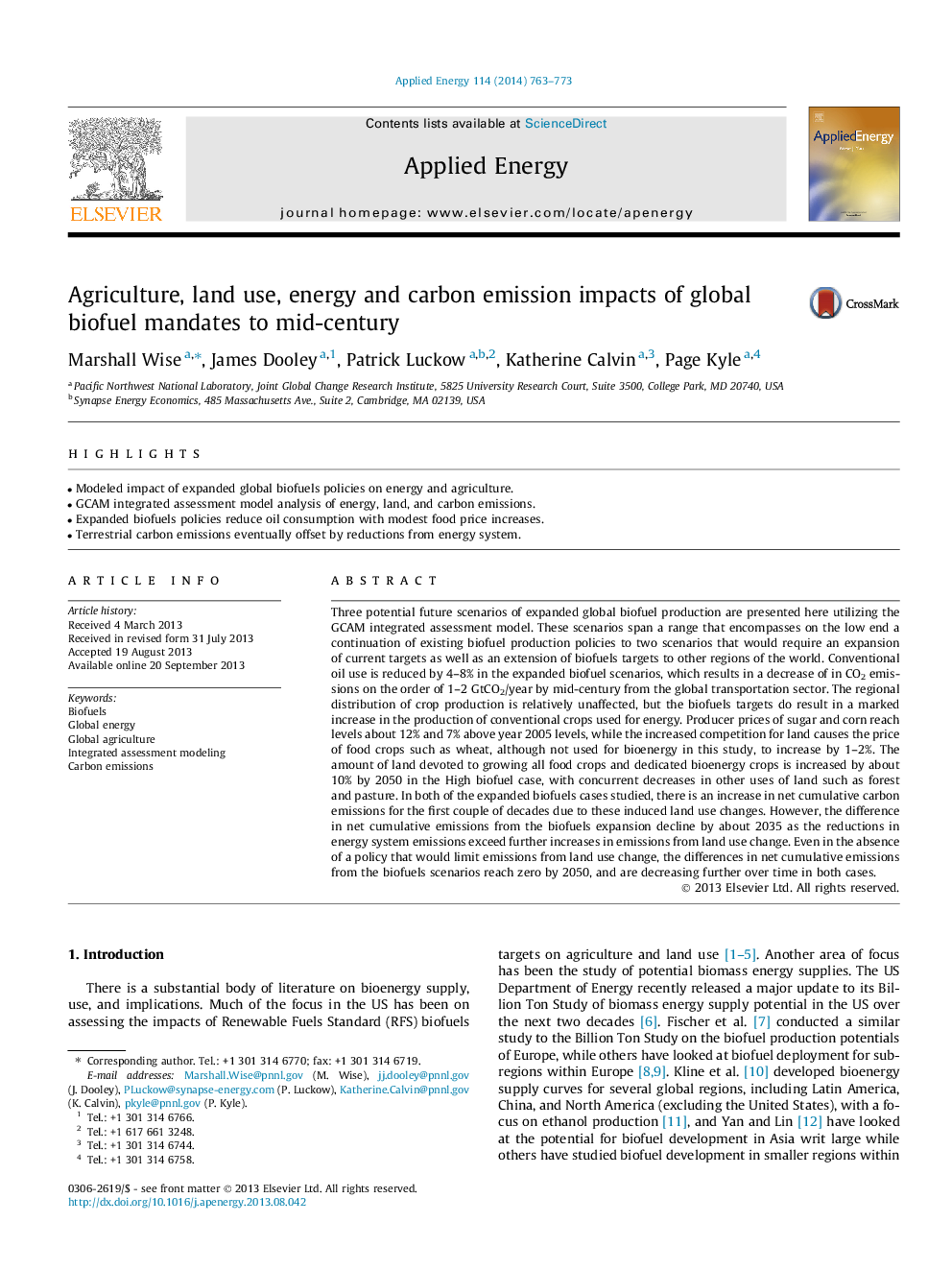| Article ID | Journal | Published Year | Pages | File Type |
|---|---|---|---|---|
| 6691762 | Applied Energy | 2014 | 11 Pages |
Abstract
Three potential future scenarios of expanded global biofuel production are presented here utilizing the GCAM integrated assessment model. These scenarios span a range that encompasses on the low end a continuation of existing biofuel production policies to two scenarios that would require an expansion of current targets as well as an extension of biofuels targets to other regions of the world. Conventional oil use is reduced by 4-8% in the expanded biofuel scenarios, which results in a decrease of in CO2 emissions on the order of 1-2 GtCO2/year by mid-century from the global transportation sector. The regional distribution of crop production is relatively unaffected, but the biofuels targets do result in a marked increase in the production of conventional crops used for energy. Producer prices of sugar and corn reach levels about 12% and 7% above year 2005 levels, while the increased competition for land causes the price of food crops such as wheat, although not used for bioenergy in this study, to increase by 1-2%. The amount of land devoted to growing all food crops and dedicated bioenergy crops is increased by about 10% by 2050 in the High biofuel case, with concurrent decreases in other uses of land such as forest and pasture. In both of the expanded biofuels cases studied, there is an increase in net cumulative carbon emissions for the first couple of decades due to these induced land use changes. However, the difference in net cumulative emissions from the biofuels expansion decline by about 2035 as the reductions in energy system emissions exceed further increases in emissions from land use change. Even in the absence of a policy that would limit emissions from land use change, the differences in net cumulative emissions from the biofuels scenarios reach zero by 2050, and are decreasing further over time in both cases.
Related Topics
Physical Sciences and Engineering
Energy
Energy Engineering and Power Technology
Authors
Marshall Wise, James Dooley, Patrick Luckow, Katherine Calvin, Page Kyle,
